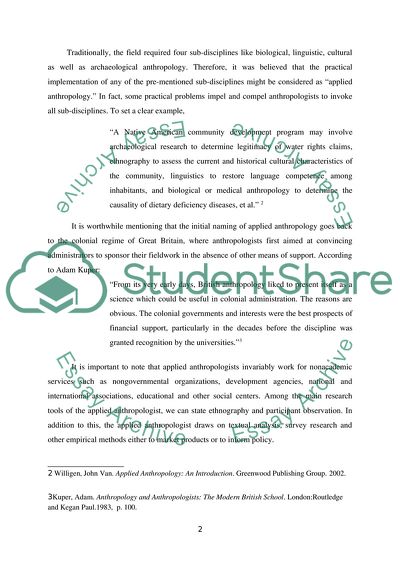Cite this document
(What is Applied Anthropology Research Paper Example | Topics and Well Written Essays - 1750 words, n.d.)
What is Applied Anthropology Research Paper Example | Topics and Well Written Essays - 1750 words. Retrieved from https://studentshare.org/anthropology/1734254-what-is-applied-anthropology
What is Applied Anthropology Research Paper Example | Topics and Well Written Essays - 1750 words. Retrieved from https://studentshare.org/anthropology/1734254-what-is-applied-anthropology
(What Is Applied Anthropology Research Paper Example | Topics and Well Written Essays - 1750 Words)
What Is Applied Anthropology Research Paper Example | Topics and Well Written Essays - 1750 Words. https://studentshare.org/anthropology/1734254-what-is-applied-anthropology.
What Is Applied Anthropology Research Paper Example | Topics and Well Written Essays - 1750 Words. https://studentshare.org/anthropology/1734254-what-is-applied-anthropology.
“What Is Applied Anthropology Research Paper Example | Topics and Well Written Essays - 1750 Words”, n.d. https://studentshare.org/anthropology/1734254-what-is-applied-anthropology.


